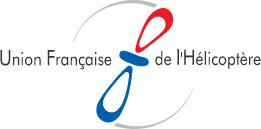SNEH / UFH – EDITORIAL
Theoretical management of air safety leads to administrative burden increase and disconnection between regulatory and the real live.
Dear colleagues,
At the time of air safety assessments, we can wonder about the interaction between compliance and air safety management.
Compliance today absorbs a lot of resources and energy, due to the regulatory surge to cope with ever more restrictive regulations, not always in line with the activities of companies and often poorly adapted to the missions carried out.
The complexity of texts destroys the organization of work in companies, causing endless meetings to debate the meaning of each text. These are evolving so quickly (21 revisions to date of EU Regulation 265/2012 of 2363 pages, or 21 revisions in 11 years), that their staff have the feeling of being subjected to the punishment of Sisyphus, condemned to perpetually start their work again. They can no longer use their acquired skills and experience for the safe operation of helicopters.
Wanting to regulate everything down to the smallest detail only generates studies, analyses, tons of paper but for what result in terms of actual safety enhancement?
This regulation to which companies must comply is excessively time-consuming for staff and requires multiple screens to read, as there are so numerous references and interactions between the different points of the regulation(s).
For a helicopter operator carrying out CAT and SPO missions, there are more than 5,200 pages of regulations, not speaking about those about the maintenance, that must be mastered, the guides and all other regulatory texts to make applicable in a company, including the rules of international and national civil aviation, Labor Code, social collective agreement…
Consequently, due to the fact that the applicable regulations are constantly being revised and subject to interpretation, operators can never be completely up to date; compliance control audits are increasing accordingly.
Today one must add the need to comply with a regulation on cybersecurity, totally unsuitable for the size and structure of our operators, maintenance teams and flight schools, within which almost no one considers that it is likely to concretely improve aviation safety.
The limits of human capabilities are reached and many choose to leave the profession, depriving both the industry and the authorities of their skills and especially their experience.
Cheers
Christophe Rosset
Président du Syndicat National des Exploitans d’HélicoptèresCo-président de Union Française de l’Hélicoptère et du vol vertical

